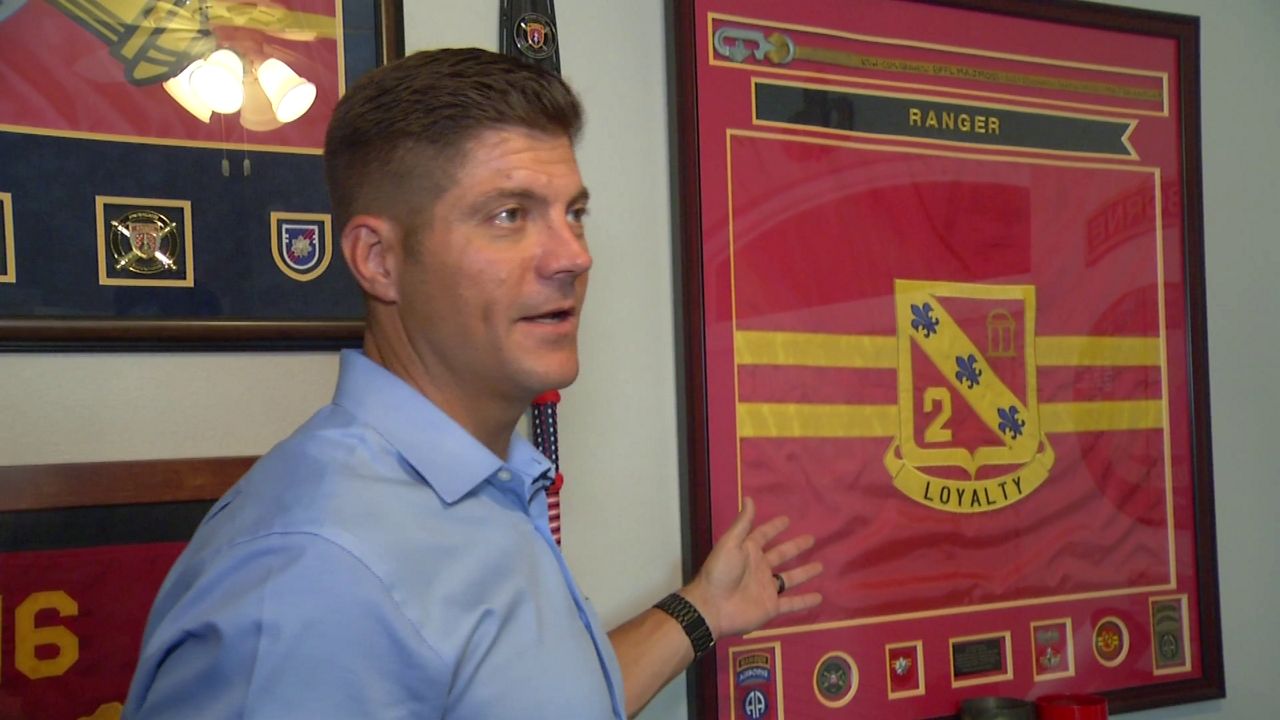ORLANDO, Fla. — One of the biggest challenges for a veteran can be transitioning from military to civilian life.
And one of the biggest obstacles in that transition for a veteran can be overcoming PTSD, which can often come from what a veteran experienced on the battlefield.
More than a decade ago, UCF Restores developed a very effective treatment for veterans and others, like first responders, to overcome traumatic experiences.
Now, one veteran is in the process of using his company’s technology to develop a program that will allow that treatment to be accessible far beyond the University of Central Florida — to mental health counselors and ultimately veterans all over the world.
When he looks back at his long military career, Wayne Fogel says a flag posted up in his home office symbolizes one of his fondest memories from his service — when he got the chance to command a field artillery battalion in the 82nd Airborne Division.
“I love this because every paratrooper in my battalion touched this item, touched this flag at some point in time when I served there, and every one of them I feel deeply connected to,” said Fogel.

Fogel is now continuing his transition from the active military to civilian life, a transition he says can be difficult, especially if a veteran is haunted by traumatic memories from their service. His company, Terasynth, develops software for military training.
Terasynth is now in the process of updating UCF Restores' PTSD treatment program into software that can allow a mental health therapist to use virtual reality and artificial intelligence to visually recreate the source of the veteran’s trauma.
“So that therapist is able to manipulate — without the use of a software developer — everything about that scene,” said Fogel. “If they need to bring in vehicles, or if they need to bring in a hotel room, or if they need to take you overseas, they can go anywhere in the world, create any scene in the world that is specific to the trauma you experienced.”
Fogel says the program Terasynth is developing would allow a mental health counselor to download it from the cloud and then administer it to their client, making it accessible virtually from anywhere. He says he owes it to his fellow veterans to make sure they get the help they need.
“No matter where we went, no matter how horrible the environment was, we weren’t leaving unless everyone came with us — no matter what condition they were in,” said Fogel. “So I want them to seek that treatment because I don’t want anyone left behind, I don’t want anyone struggling, I don’t want anyone just sitting quietly and stewing and hoping for a better life when there’s an opportunity that’s out there.”
Fogel says UCF Restores has successfully treated at least 1,000 veterans.
He says when his program gets online by early next year, his goal is to expand the treatment to 10,000 veterans within the first year.
Fogel says in most cases insurance would cover the treatment, but he says he’s also reaching out to Florida’s congressional delegation in Washington to get the costs covered through federal funding.




